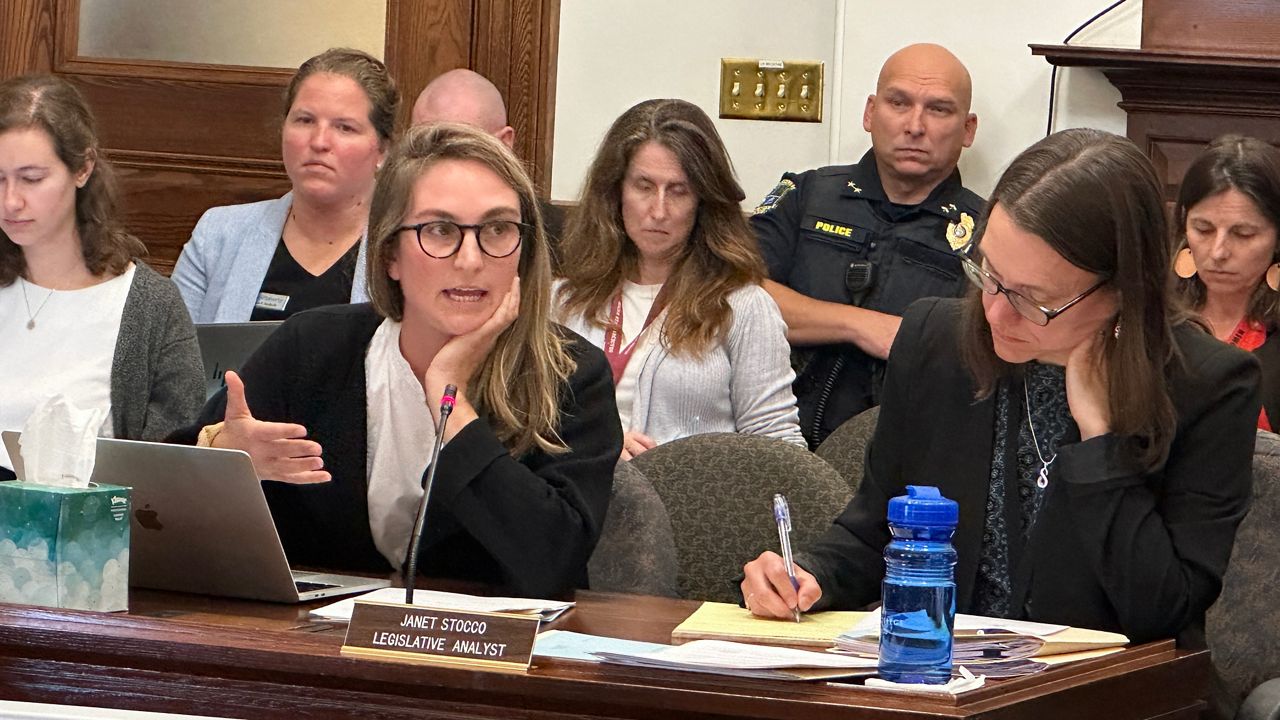The Senate passed the National Defense Authorization Act for 2023 on Thursday, 83-11, sending it to President Biden to be signed.
The bill represents the annual allotment of military-related spending for personnel and construction of new equipment. This year’s bill allocates nearly $858 billion for national defense, including hundreds of millions of dollars for Maine servicemen and women and manufacturing.
Maine’s four congressional delegates in the House and Senate supported the bill.
Rep. Chellie Pingree (D-Maine) and Rep. Jared Golden (D-Maine) noted earlier this month, when the bill passed the house, that the bill includes three Arleigh Burke-class destroyers, advance funding for another destroyer in 2024, and $250 million for upgrades at Bath Iron Works.
The shipyard employs approximately 6,500 workers.
Golden said the bill also allows for up to 15 more destroyers over the next five years.
The bill also benefits Portsmouth Naval Shipyard’s drydock project to the tune of $503 million.
The money is part of a $1.7 billion new project to upgrade and expand the shipyard’s drydock system, which the shipyard uses to work on the Navy’s attack submarines.
The shipyard employs approximately 8,000 workers, according to the defense department.
The bill also includes 69 new F-35 jets and 12 CH-53K helicopters, which will benefit Pratt & Whitney’s factory in North Berwick and the Hunting Dearborn factory in Fryeburg, according to Sen. Susan Collins (R-Maine).
About 1,400 people work at Pratt & Whitney in North Berwick, while the Hunting Dearborn factory employs more than 250 people.
Collins said the bill includes $45 million for the U.S. Army Corps of Engineers to repair erosion around a jetty it built 150 years ago at Camp Ellis in Saco.
“This funding is a major victory for Camp Ellis and will finally provide a solution for residents who have lost dozens of homes over generations,” said Collins.
King also noted the bill provides a 4.6% pay raise for military personnel, and funds a study of suicide among military personnel, which King said was “at an all-time high.” King said this provision would include suicide data broken down by military occupation.
The bill also includes a provision that stops the military from mandating COVID-19 vaccines for servicemen and women, according to a statement from Sen. Roger Marshall (D-Kan.). Marshall, along with a number of key Republican senators, including Sen. Rand Paul (R-Ky.) and Sen. Lindsey Graham (R-S.C.), wrote a joint letter to senate leadership on Nov. 30 protesting the mandate.
The bill is about $45 billion more than Biden requested and roughly 10% more than last year's bill as lawmakers look to account for inflation and boost the nation's military competitiveness with China and Russia.







)

